CMI 302 Managing a Team to Achieve Results
- March 2, 2023
- Posted by: Scarlett
- Category: CMI Level 3

CMI 302 Managing a Team to Achieve Results is a comprehensive unit designed to equip learners with the knowledge, skills, and behaviours required to effectively manage a team and achieve results. This unit is aimed at individuals who are responsible for managing teams and who want to develop their leadership and management capabilities to drive performance and enhance team effectiveness.
Throughout the unit, learners will gain a deep understanding of the key principles and practices of team management, including team building, motivation, communication, and problem-solving. Learners will also explore different leadership styles and techniques, and develop the skills and behaviours required to manage and lead teams effectively.
By the end of the unit, learners will have gained the skills and knowledge required to build and manage high-performing teams, motivate and engage employees, and drive organizational success. They will also have a strong understanding of how to apply different management and leadership approaches to achieve results and overcome challenges, and be able to analyze and evaluate team performance to identify areas for improvement.
Overall, CMI 302 is a valuable unit for individuals looking to enhance their team management skills and drive performance in the workplace. It provides a solid foundation in the principles and practices of team management and equips learners with the knowledge and skills required to manage teams effectively and achieve results.
Aims of unit
CMI 302 – Managing a Team to Achieve Results, focuses on the development of critical skills required for any manager to build and manage effective teams. The ability to create and manage teams that can communicate effectively and work towards a common goal is essential for achieving organizational success. This unit has been designed to equip managers with the necessary knowledge and skills to understand the nature of teams in the workplace and manage them to achieve desired results.
Through this unit, managers will learn how to create a conducive environment for team building, where members understand the collective values, goals, and objectives. The unit explores the characteristics of high-performing teams and how they can be created and managed to achieve results. Additionally, learners will gain insights into how to develop a shared vision for the team and how to foster teamwork, motivation, and communication.
Ultimately, CMI 302 provides a framework for managers to create and manage effective teams that can overcome barriers to achievement and deliver results. It equips them with the necessary tools and techniques to enhance their leadership and management skills, enabling them to drive high performance and success in their respective organizations.
What you’ll learn
CMI 302 – Managing a Team to Achieve Results, is a comprehensive unit that aims to equip learners with the necessary knowledge and skills to manage teams effectively and achieve desired results. Throughout the unit, learners will gain insights into various aspects of team management, including:
- Understanding the nature of teams in the workplace and the characteristics of high-performing teams.
- Developing a shared vision for the team and aligning goals and objectives.
- Fostering teamwork, motivation, and communication within the team.
- Identifying and overcoming barriers to team achievement.
- Evaluating team performance and identifying areas for improvement.
- Applying different leadership and management approaches to achieve results.
- Delegating tasks and responsibilities effectively to team members.
- Building and managing a diverse team.
By the end of the unit, learners will have developed a comprehensive understanding of team management principles and practices, and the ability to apply them to achieve desired outcomes. They will have gained the skills and knowledge required to build and manage high-performing teams, identify and address team challenges, and create a collaborative and inclusive team environment. Additionally, learners will be able to evaluate team performance and identify areas for improvement to drive team success and organizational performance. Overall, CMI 302 provides learners with the tools and techniques to be effective team managers and achieve results in the workplace.
Learning outcome
The unit CMI 302 – Managing a Team to Achieve Results, has been designed to provide learners with the necessary knowledge and skills to manage teams effectively and achieve desired results. Upon completion of this unit, learners will be able to:
- Understand the role and purpose of teams in the workplace and the benefits of high-performing teams.
- Recognize the characteristics of a high-performing team, including communication, collaboration, and shared goals.
- Lead, communicate with, and motivate a high-performing team, using different leadership and communication styles to achieve desired outcomes.
- Respond to challenges when managing a team proactively, identifying and addressing issues that could impact team performance.
- Manage the performance of a team, setting goals, monitoring progress, and providing feedback to ensure team members are working towards achieving desired outcomes.
By the end of the unit, learners will have developed a comprehensive understanding of team management principles and practices, and the ability to apply them to achieve desired outcomes. They will have gained the skills and knowledge required to build and manage high-performing teams, identify and address team challenges, and create a collaborative and inclusive team environment. Additionally, learners will be able to evaluate team performance and identify areas for improvement to drive team success and organizational performance. Overall, CMI 302 provides learners with the tools and techniques to be effective team managers and achieve results in the workplace.
How can we help?
CMI assignments can be challenging for students, as they require a deep understanding of management and leadership concepts and their practical application in the workplace. CMI Assignment Help can assist students in completing their CMI 302 assignments by providing the necessary support and guidance to ensure they achieve the desired outcomes.
Here’s how CMI Assignment Help can assist students in completing their CMI 302 assignments:
- Expert guidance: Our team of experts can provide students with expert guidance and support in understanding the concepts and principles of team management. They can clarify any doubts or queries students may have and provide practical examples to illustrate the application of these concepts in the workplace.
- Customized solutions: Our experts can provide customized solutions tailored to the specific requirements of each assignment. They can help students in developing a clear and concise argument, identify relevant sources, and presenting information in a structured and logical manner.
- Timely delivery: We understand the importance of timely submission of assignments. Our team of experts can assist students in completing their assignments within the given deadline, ensuring that they have sufficient time to review and make any necessary revisions.
- Plagiarism-free work: Our experts ensure that all assignments are original and free from plagiarism. They use reliable sources to gather information and provide proper citations to ensure that the work is of high quality and meets academic standards.
Overall, CMI Assignment Help can assist students in completing their CMI 302 assignments with ease, providing the necessary support and guidance to achieve academic success.
Resources
- Belbin (1993) Team Roles
- Dunbar (2010) Dunbar’s Number
- Hersey and Blanchard (1969) Situational Leadership
- Hertzberg (c.1959) Motivational Theory
- Honey (2001) Five Team Roles
- Lewin (1939) Styles of Leadership
- Maslow (1943/1954) Hierarchy of Needs
- Myers Briggs (1943) Myers Briggs Type Indicator
- Schramm (1954) Model of Communication
- Shannon and Weaver (1948) Model of Communication
- Tannenbaum & Schmidt (1958) Leadership Continuum
- Tuckman (1956) Stages of Team Development
Related Articles:
Why Choose Us?
- GPT Zero
- 100% Non-plagiarised Papers
- Dedicated human resource writers
- 24/7 /365 Service Available
- Affordable Prices
- Money-back and Privacy guarantees
- Unlimited Amendments upon request
- Satisfaction guarantee
